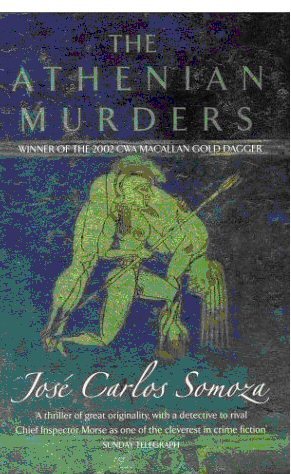Plato is sometimes put to other uses. Chapter Twelve: Plato conscripted.
Plato, too, has been recruited in a crimie. 
He is minor character in this book.
Speaking of the strange duties Plato is put to consider this used clothing shop in Omaha Nebraska. You may have to enlarge the picture to see it properly. I cannot find the original on this computer.  I have asked in here about the name and got “I actually like just started working here actually yesterday, so, like, I don’t actually like know, like.” Ah, the wonders of free, public education.
I have asked in here about the name and got “I actually like just started working here actually yesterday, so, like, I don’t actually like know, like.” Ah, the wonders of free, public education.
To make Plato seem more than an idealist we also go over his several visits to Sicily, at Syracuse where the Athenian empire ended, to educate the king to be there into the ways of philosophy so that king may become a philosopher if a philosopher doe not become king. None of these visits went well and Plato had to be ransomed by friends back in Athens. On this try Mary Renault, The Mask of Apollo. I should also mention here The Last of the Wine set during the Peloponnesian War in Athens. She was a South African and I corresponded with her when I was a feckless lad.
While mentioning literary association another good one is Paul Johnston who wrote a series of crimies set in a future Edinburgh, now a city state ruled by Platonists who are even worse than Plato’s step children. These Platonists have taken it all very seriously. Try his Body Politic.
http://www.amazon.com/Body-Politic-Paul-Johnston/dp/0312202792/sr=1-2/qid=1171178699/ref=pd_bbs_2/104-9218693-4177505?ie=UTF8&s=books
There are four or five of them.
Remembering the very word Theôria? Note that reading The Republic is a trip from the opening scene to the closing Myth of Er (routinely omitted from comment in text books) itself is a journey to the after life to see the rewards of justice. I have some tapes made in 1976 of a BBC radio production of The Republic with Rumpole (Leo McKern) as Socrates. I play the Myth of Er and it works usually, but those tapes are perishing and I don’t know how to preserve them. I tried dubbing them to no avail. I cannot find any trace of the six part program on the BBC web site. Yes there are other audio versions and I have two of them, but there is only one Rumpole.
Plato’s Academy was a training ground for many young men from Athens and elsewhere who went into government and politics and it has been argued that it had a great deal of influence over the succeeding generation. If and when I get to Athens I hope to walk the grounds where the Academy stood. It was, perhaps, something like the Kennedy School of Government today.
As optimistic as Plato was to think the world could conform to ideas, he also had a dark side. In his famous seventh letter he says that the reality of what he knows cannot be written down. It is an almost spooky passage as though he knows a terrible truth that he dare not say.
There are many other Platonic texts. I have sometimes taught the Laws with the Republic to bring out the differences. Though we are now sure the Laws is by Plato we have only come to that conclusion in the last two hundred years. For eons it was rejected as a Platonic work because it is so different from the Republic and yet covers the same issues. Cicero read the Laws but did not believe it by Plato. By the way Robert Harris’s novel Imperium paints a much more vivid picture of Cicero than any I have read before. The difference is that Plato wrote the Republic when much younger and still partly under the direct influence of Socrates and he wrote the Laws much later, when he was eighty and no longer speaking as much for Socrates as for himself and living in a different world. The Laws is the only Platonic text that does not feature a character called Socrates, another reason why it was not accepted as a Platonic text for centuries.
Strangely enough we have the complete Platonic corpus these thousands of years later but not Aristotle. We have lost many works of Aristotle. We know by reference to missing works in other surviving ancient works. We have more Platonic works because his work was copied and distributed before the final collapse of the Greek world at the end of the War and Would Never End. But Aristotle writing one generation later was in a time when copying and distributing were harder. Most the preservation, by the way, was done by Arabic scholars. In 1988, I think it was, some boxes holding wooden tablets were found in the Egyptian desert near Siwa and early reports suggested some fragment of a missing work of Aristotle, The Constitution of Athens and other cities, of which otherwise remain only a few pages. It was plausible because Alexander the Great made a pilgrimage to Siwa, and maybe he took it all to study! Alas the find turned out to be bills of lading for merchandise. What a find it would be though cutting out two thousand years of editors and translator moving that much closer to the man himself.
To be continued.
